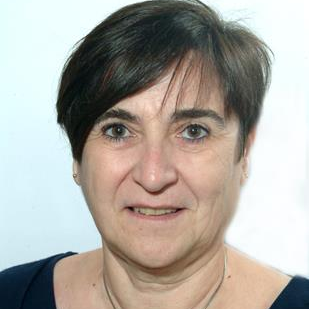Non-destructive Techniques for Cultural Heritage Characterization
A special issue of Applied Sciences (ISSN 2076-3417).
Deadline for manuscript submissions: closed (30 December 2022) | Viewed by 34181
Special Issue Editors
Interests: non-destructive characterization of heritage items; neutron-based techniques; archeometallurgy; archeometry; vibrational spectroscopy; Raman spectroscopy; glass
Interests: cultural heritage; archaeometry; geoanthropology; georesources; sustainable supply chain; sustainable development goals
Special Issues, Collections and Topics in MDPI journals
Special Issue Information
Dear Colleagues,
At the forefront of archeometric research, scientists are exploring consolidated and new techniques to achieve the in-depth non-destructive characterization of cultural heritage. When unique and precious samples are considered, conservation and preservation are mandatory issues. Yet, the definition of “non-destructive techniques” is multi-faceted, and sampling could be also included, for example, during a restoration. However, non-destructive techniques should include all scientific techniques that avoid damage and are used in preservation of artifacts (or parts of it, if sampled), addressed in multidisciplinary studies.
Applied Sciences will dedicate a Special Issue to non-destructive techniques applied to cultural heritage, with the presentation of new approaches and new challenges in neutron- and muon-based analysis.
Contributions discussing all aspects, as indicated by the keywords, and review articles by experts in the field are welcome.
Dr. Daniela Di Martino
Prof. Dr. Maria Pia Riccardi
Dr. Massimiliano Clemenza
Guest Editors
Manuscript Submission Information
Manuscripts should be submitted online at www.mdpi.com by registering and logging in to this website. Once you are registered, click here to go to the submission form. Manuscripts can be submitted until the deadline. All submissions that pass pre-check are peer-reviewed. Accepted papers will be published continuously in the journal (as soon as accepted) and will be listed together on the special issue website. Research articles, review articles as well as short communications are invited. For planned papers, a title and short abstract (about 100 words) can be sent to the Editorial Office for announcement on this website.
Submitted manuscripts should not have been published previously, nor be under consideration for publication elsewhere (except conference proceedings papers). All manuscripts are thoroughly refereed through a single-blind peer-review process. A guide for authors and other relevant information for submission of manuscripts is available on the Instructions for Authors page. Applied Sciences is an international peer-reviewed open access semimonthly journal published by MDPI.
Please visit the Instructions for Authors page before submitting a manuscript. The Article Processing Charge (APC) for publication in this open access journal is 2400 CHF (Swiss Francs). Submitted papers should be well formatted and use good English. Authors may use MDPI's English editing service prior to publication or during author revisions.
Keywords
- archeometry
- non-destructive analyses
- neutron-based techniques
- muonic atom X-ray spectroscopy
- scanning electron microscopy
- cultural heritage
- technology
- provenance
- conservation
Benefits of Publishing in a Special Issue
- Ease of navigation: Grouping papers by topic helps scholars navigate broad scope journals more efficiently.
- Greater discoverability: Special Issues support the reach and impact of scientific research. Articles in Special Issues are more discoverable and cited more frequently.
- Expansion of research network: Special Issues facilitate connections among authors, fostering scientific collaborations.
- External promotion: Articles in Special Issues are often promoted through the journal's social media, increasing their visibility.
- e-Book format: Special Issues with more than 10 articles can be published as dedicated e-books, ensuring wide and rapid dissemination.
Further information on MDPI's Special Issue policies can be found here.







